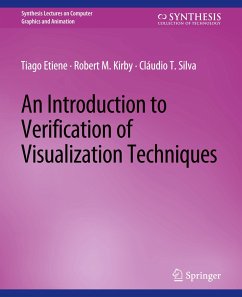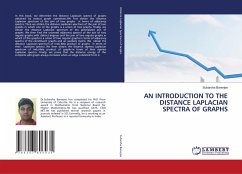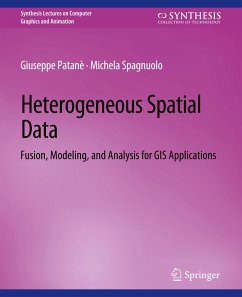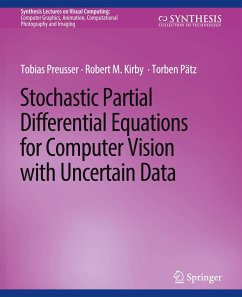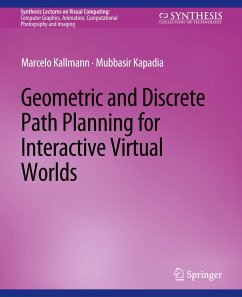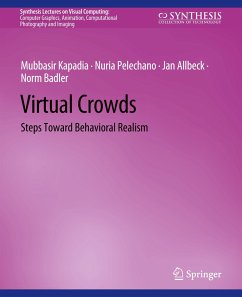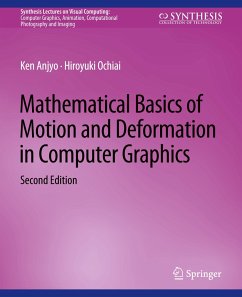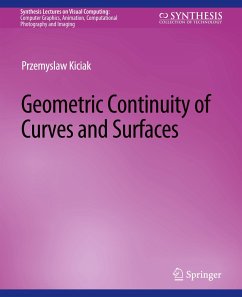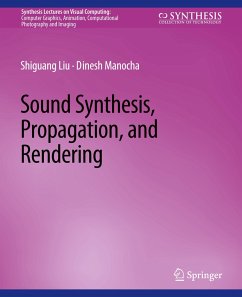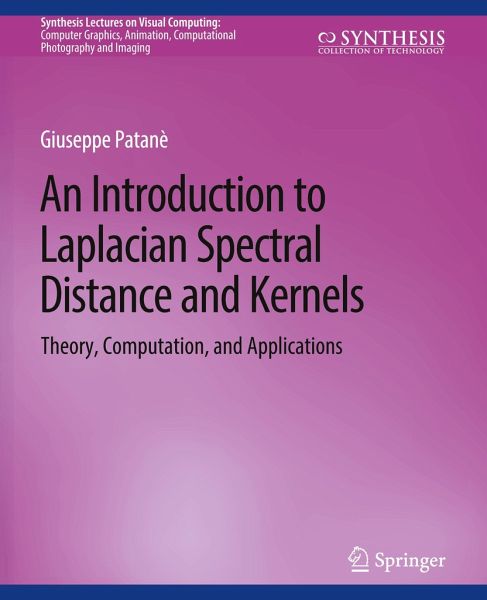
An Introduction to Laplacian Spectral Distances and Kernels
Theory, Computation, and Applications

PAYBACK Punkte
0 °P sammeln!
In geometry processing and shape analysis, several applications have been addressed through the properties of the Laplacian spectral kernels and distances, such as commute time, biharmonic, diffusion, and wave distances.Within this context, this book is intended to provide a common background on the definition and computation of the Laplacian spectral kernels and distances for geometry processing and shape analysis. To this end, we define a unified representation of the isotropic and anisotropic discrete Laplacian operator on surfaces and volumes; then, we introduce the associated differential...
In geometry processing and shape analysis, several applications have been addressed through the properties of the Laplacian spectral kernels and distances, such as commute time, biharmonic, diffusion, and wave distances.
Within this context, this book is intended to provide a common background on the definition and computation of the Laplacian spectral kernels and distances for geometry processing and shape analysis. To this end, we define a unified representation of the isotropic and anisotropic discrete Laplacian operator on surfaces and volumes; then, we introduce the associated differential equations, i.e., the harmonic equation, the Laplacian eigenproblem, and the heat equation. Filtering the Laplacian spectrum, we introduce the Laplacian spectral distances, which generalize the commute-time, biharmonic, diffusion, and wave distances, and their discretization in terms of the Laplacian spectrum. As main applications, we discuss the design of smooth functions and the Laplacian smoothing of noisy scalar functions.
All the reviewed numerical schemes are discussed and compared in terms of robustness, approximation accuracy, and computational cost, thus supporting the reader in the selection of the most appropriate with respect to shape representation, computational resources, and target application.
Within this context, this book is intended to provide a common background on the definition and computation of the Laplacian spectral kernels and distances for geometry processing and shape analysis. To this end, we define a unified representation of the isotropic and anisotropic discrete Laplacian operator on surfaces and volumes; then, we introduce the associated differential equations, i.e., the harmonic equation, the Laplacian eigenproblem, and the heat equation. Filtering the Laplacian spectrum, we introduce the Laplacian spectral distances, which generalize the commute-time, biharmonic, diffusion, and wave distances, and their discretization in terms of the Laplacian spectrum. As main applications, we discuss the design of smooth functions and the Laplacian smoothing of noisy scalar functions.
All the reviewed numerical schemes are discussed and compared in terms of robustness, approximation accuracy, and computational cost, thus supporting the reader in the selection of the most appropriate with respect to shape representation, computational resources, and target application.



